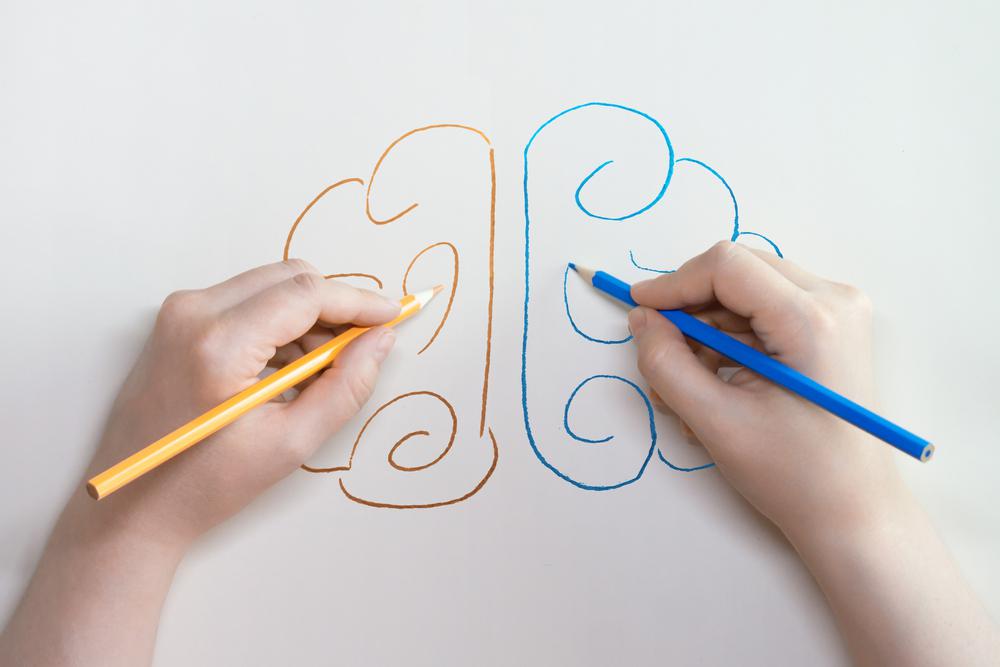Alphabet worksheets activities for Ages 3-9
28 filtered results
-
From - To
Discover a treasure trove of engaging alphabet worksheet activities designed for children aged 3 to 9! Our carefully crafted resources support literacy development through fun, interactive exercises that stimulate learning. With a variety of worksheets focusing on letter recognition, phonics, tracing, and imaginative activities, kids will enhance their understanding of the alphabet while enjoying the process. Each worksheet is tailored to accommodate various skill levels, ensuring that every child can thrive. Perfect for preschoolers and early learners, these alphabet activities will foster a love for reading and writing. Dive into our collection and watch your child's confidence soar!


Rhyming Words: Assessment Worksheet
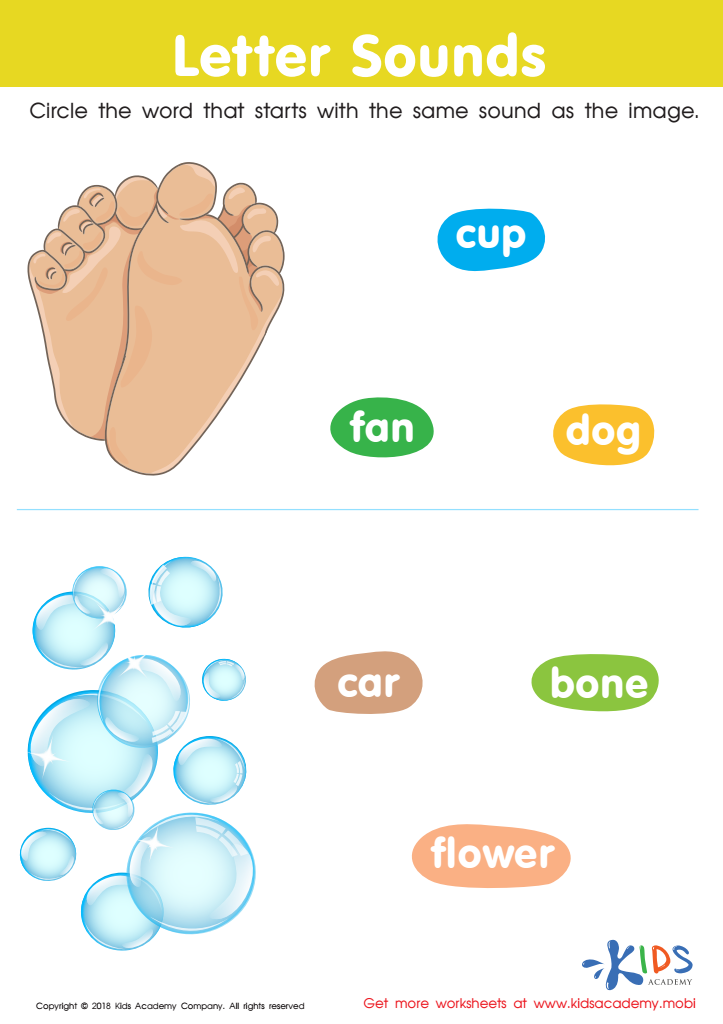

letter sounds Worksheet


Let's Check Long Vowels: Assessment Worksheet
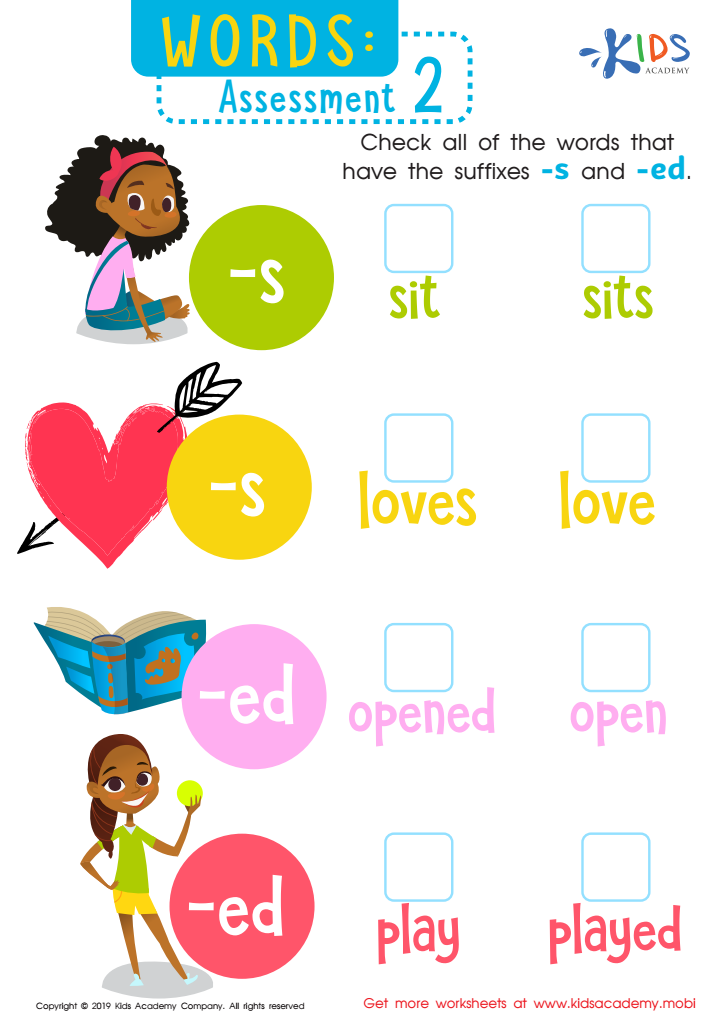

Words: Assessment 2 Worksheet
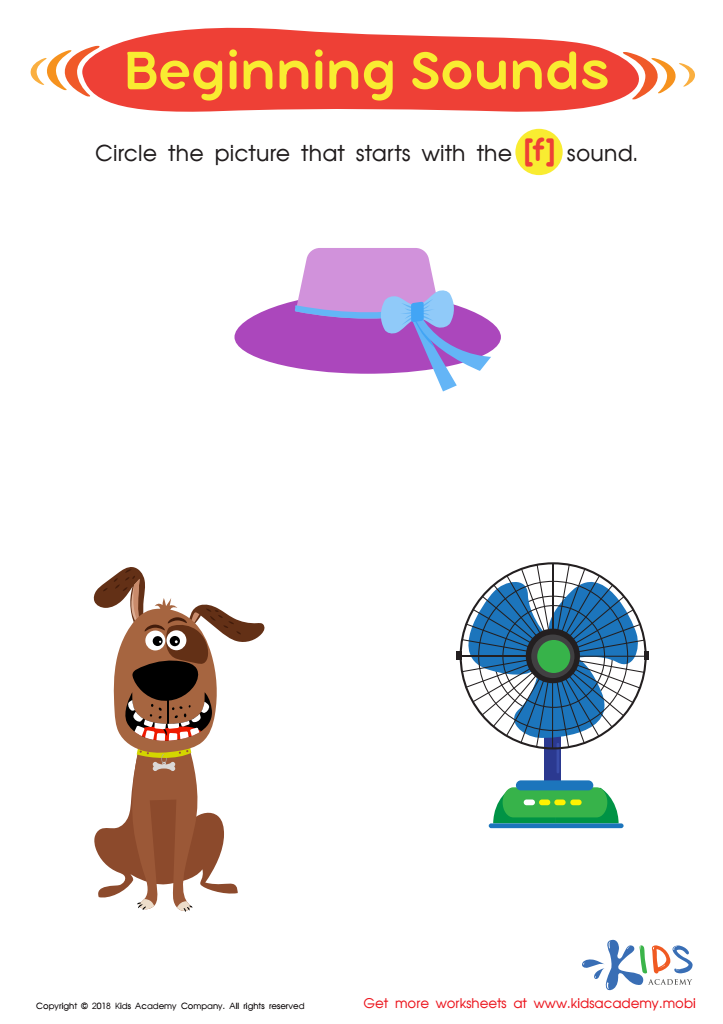

Beginning Sounds Assessment Printable
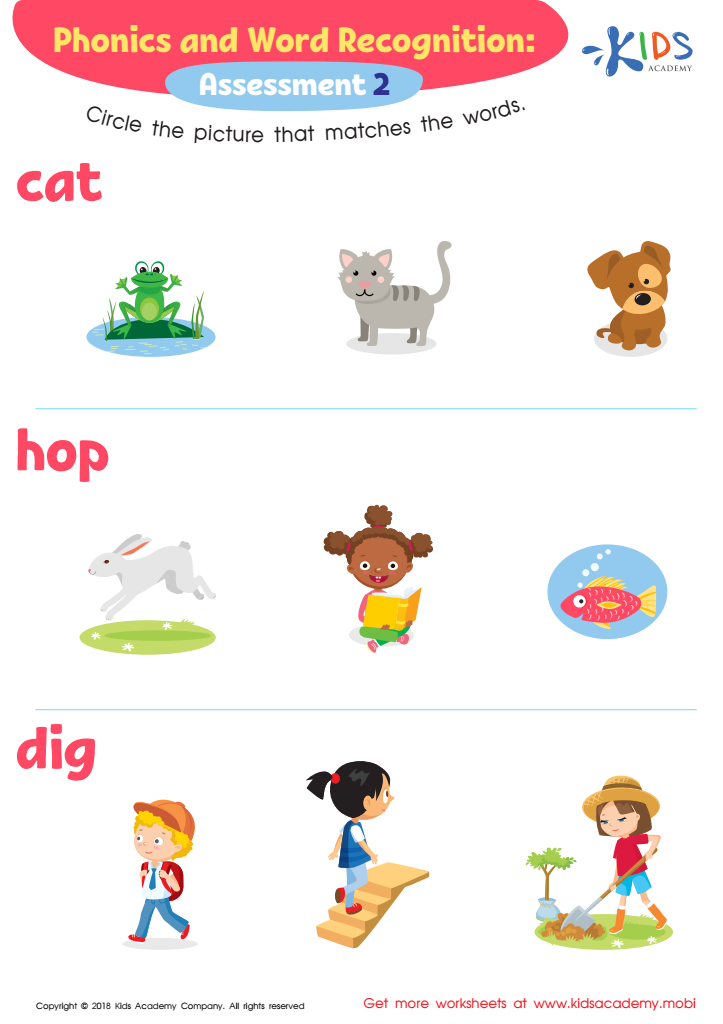

Phonological Awareness: Assessment 2 ELA Worksheet


Phonics and Word Recognition: Assessment 3 Worksheet


Vowel and Consonant Sounds: Assessment Worksheet
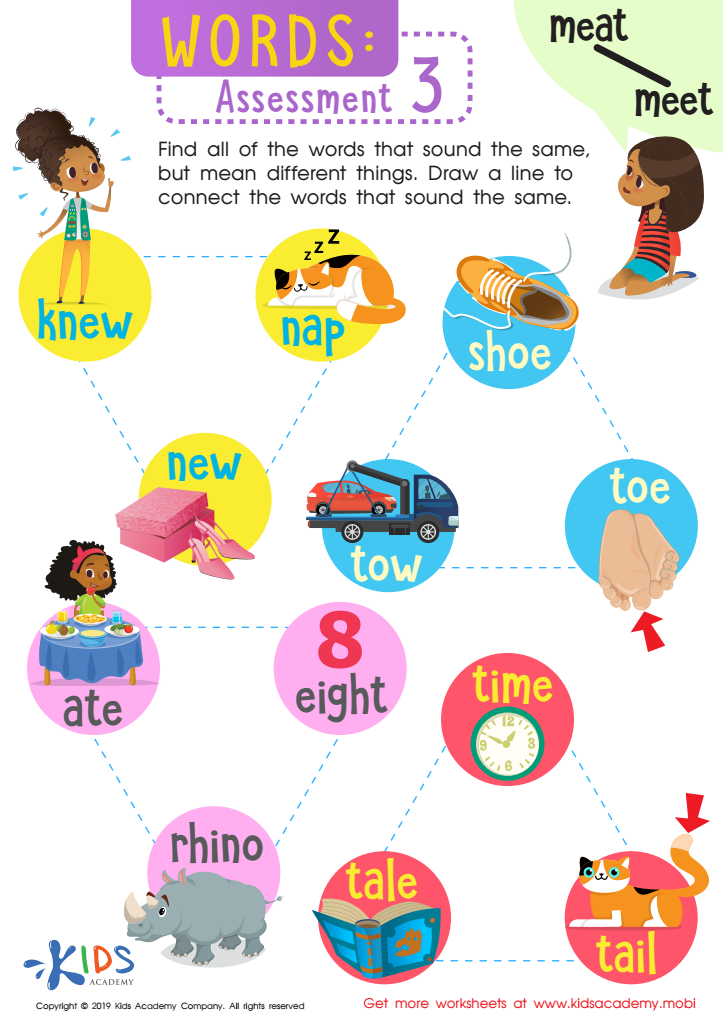

Words: Asessment 3 Worksheet
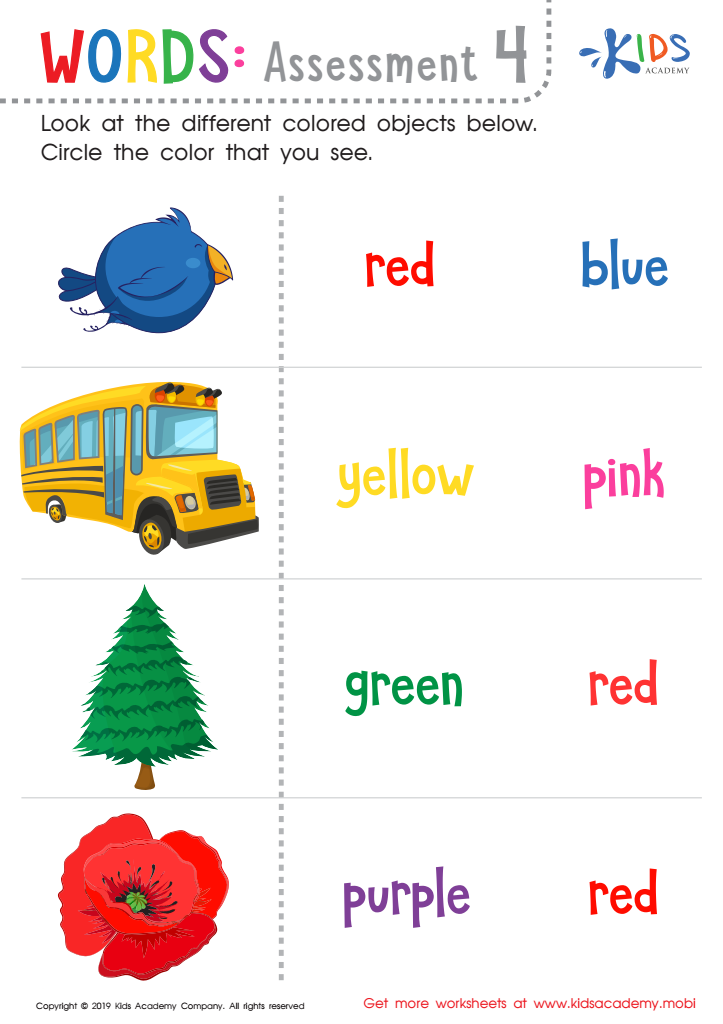

Words: Assessment 4 Worksheet
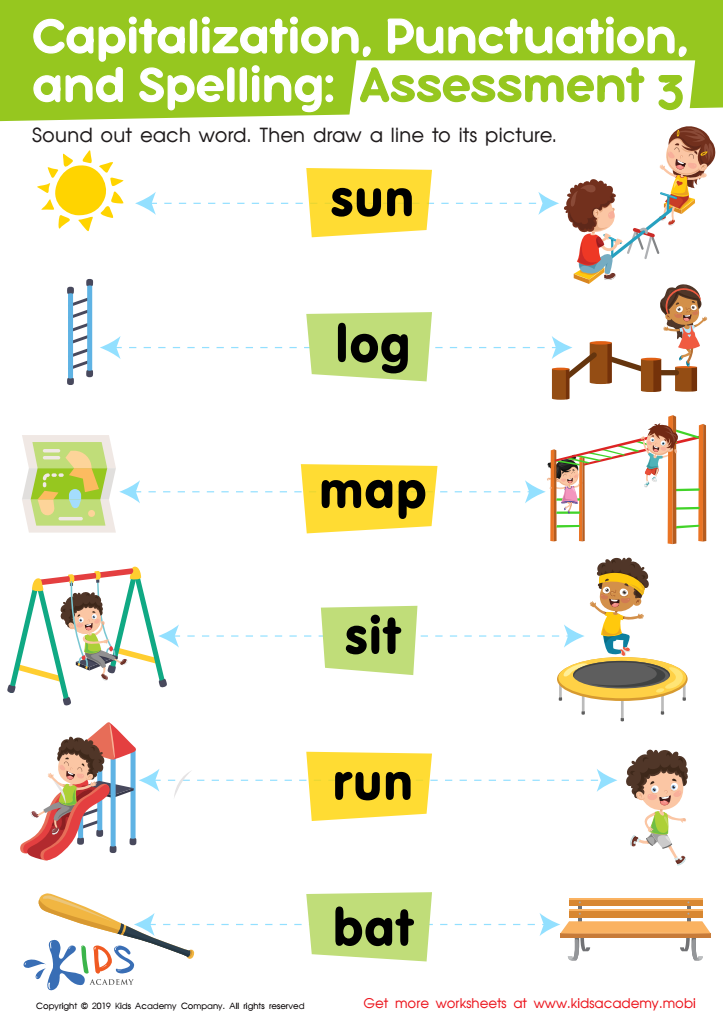

Capitalization. Punctuation. Spelling. Assessment 3 Worksheet
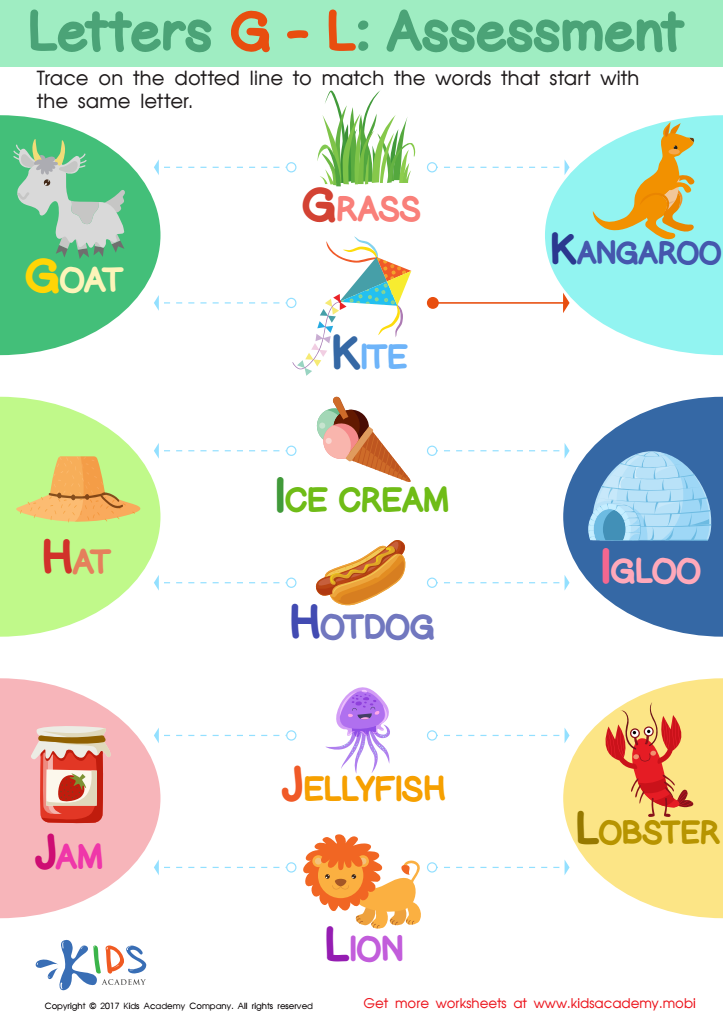

Letters G-L Worksheet
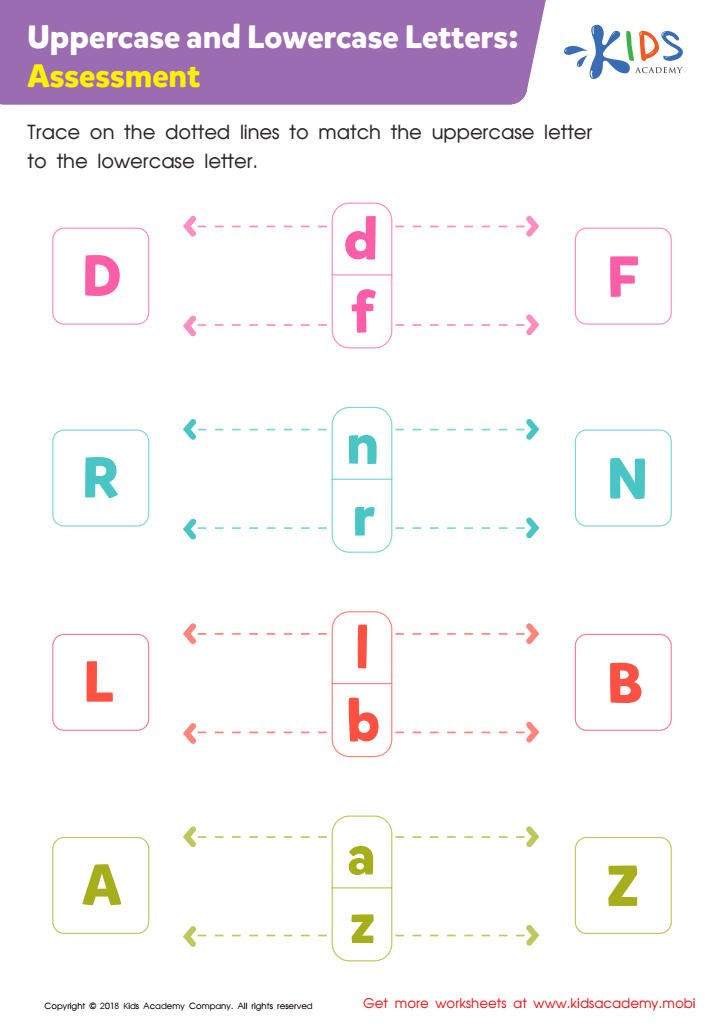

Uppercase and Lowercase Letters: Assessment Worksheet
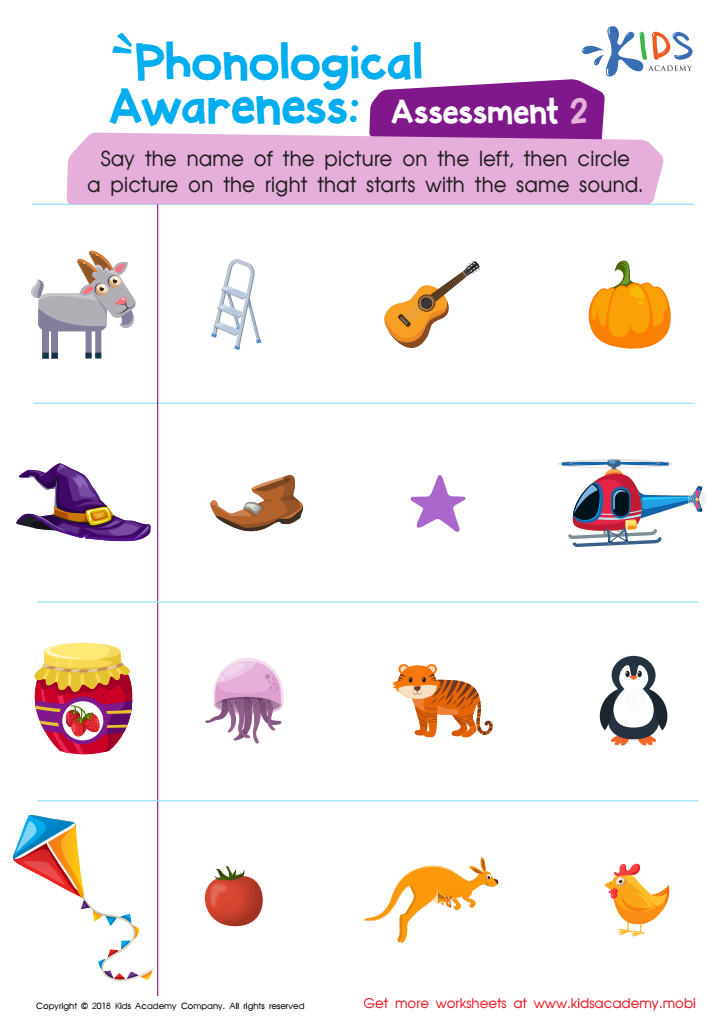

Phonological Awareness: Assessment 2 Worksheet
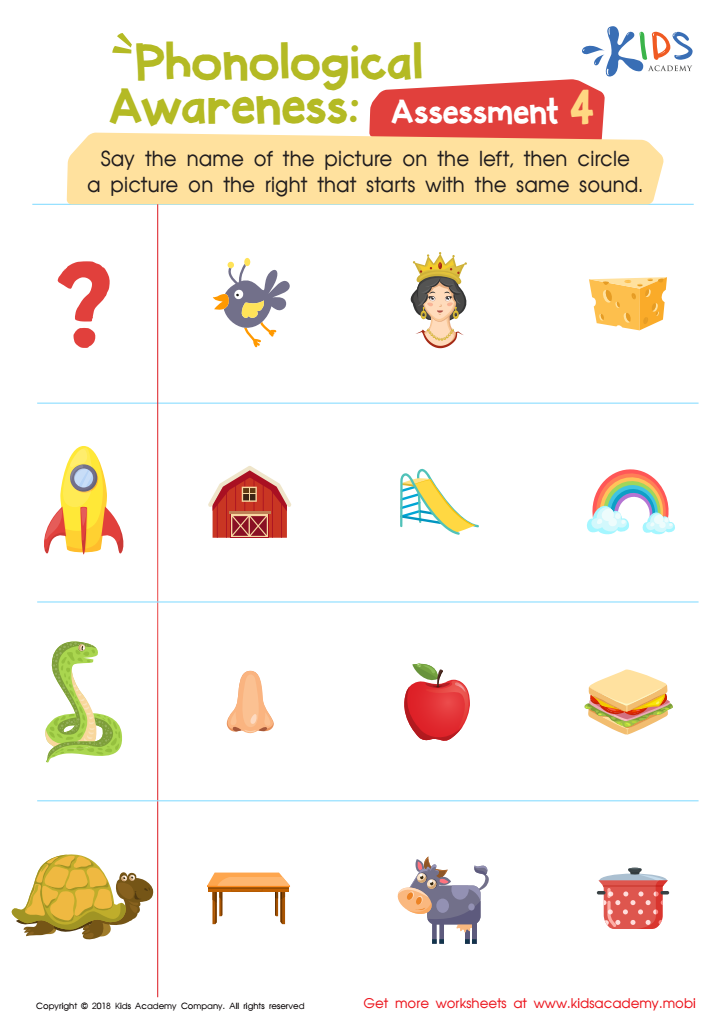

Phonological Awareness: Assessment 4 Worksheet
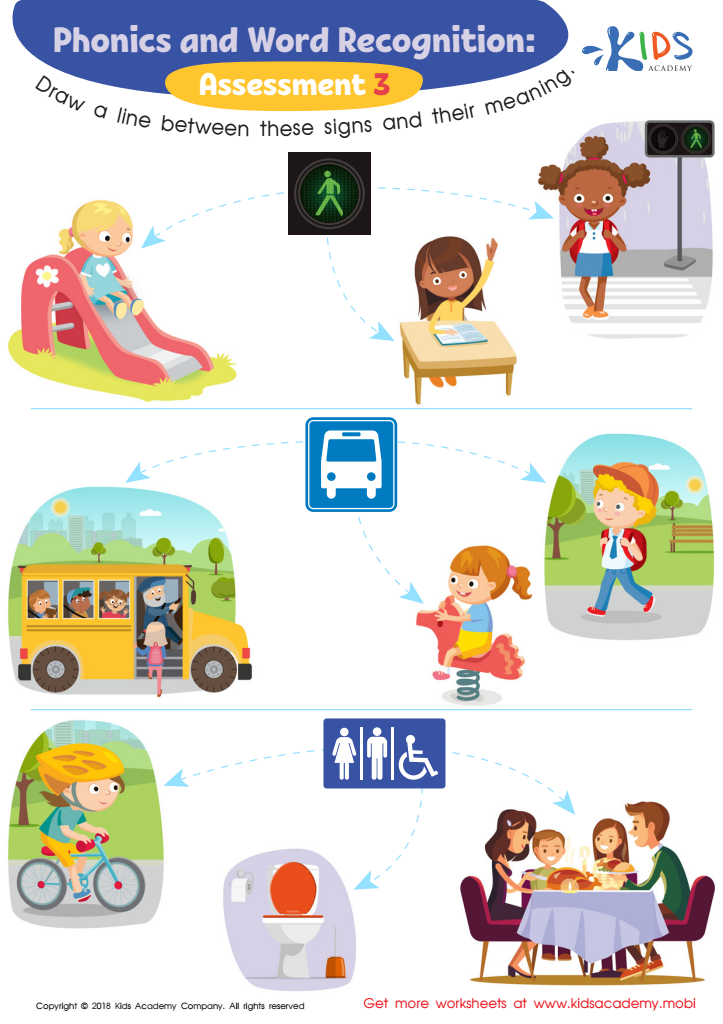

Phonological Awareness: Assessment 3 ELA Worksheet


Phonics and Word Recognition: Assessment 1 Worksheet
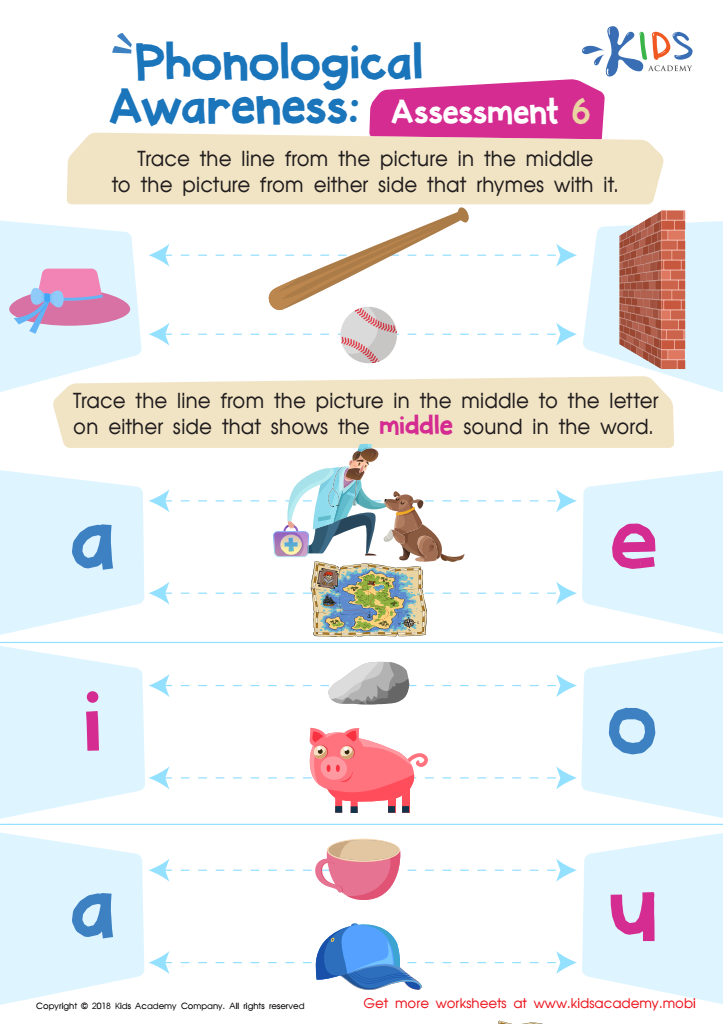

Phonological Awareness: Assessment 6 Worksheet
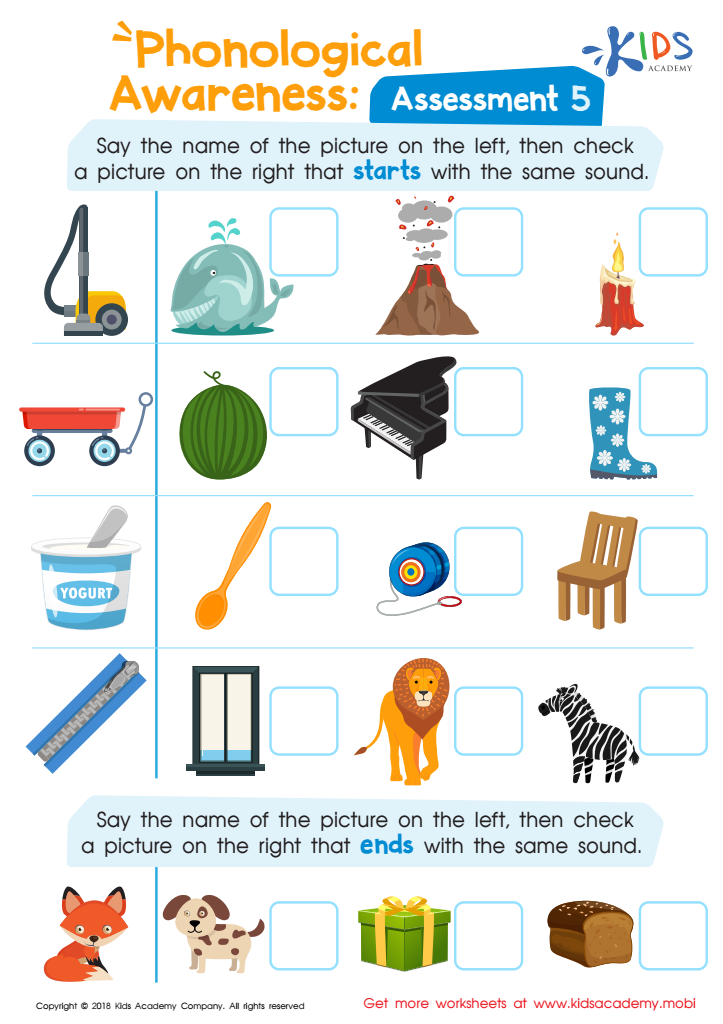

Phonological Awareness: Assessment 5 Worksheet


Long and Short Vowel Sentences: Assessment Worksheet
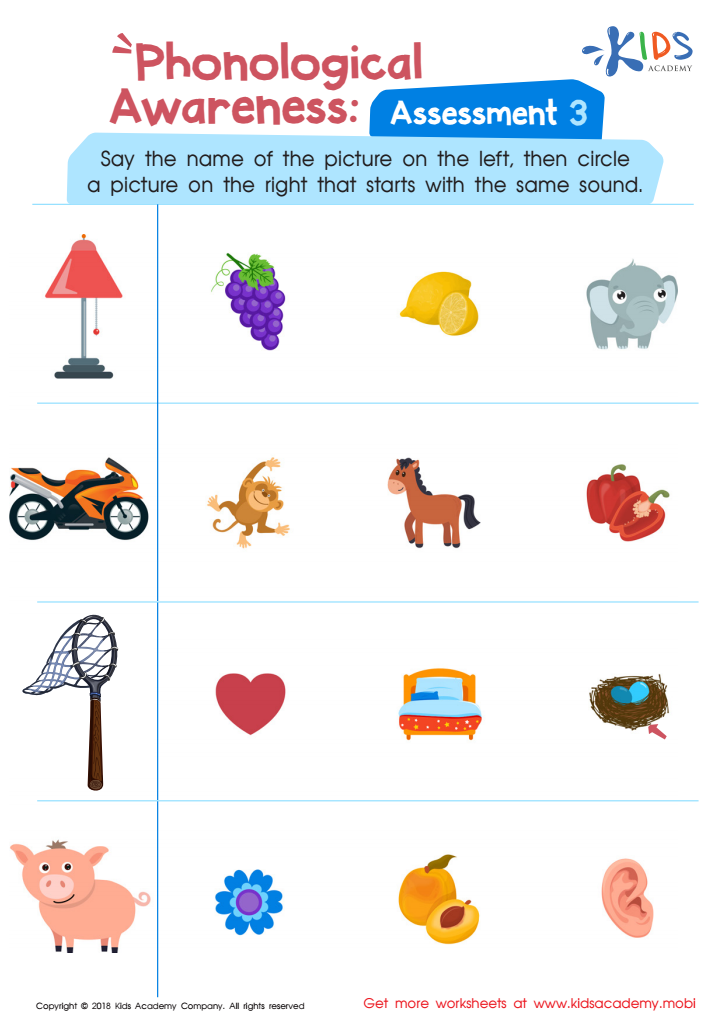

Phonological Awareness: Assessment 3 Worksheet


Phonics and Word Recognition: Assessment 1 Worksheet
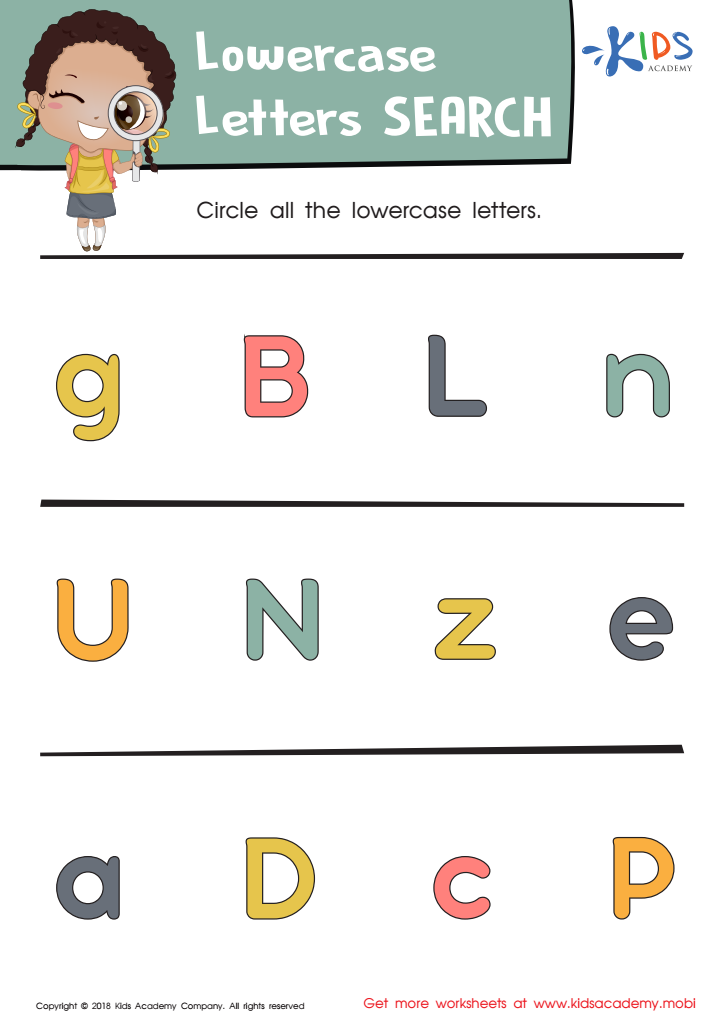

Lowercase Letters Search: Assessment Worksheet
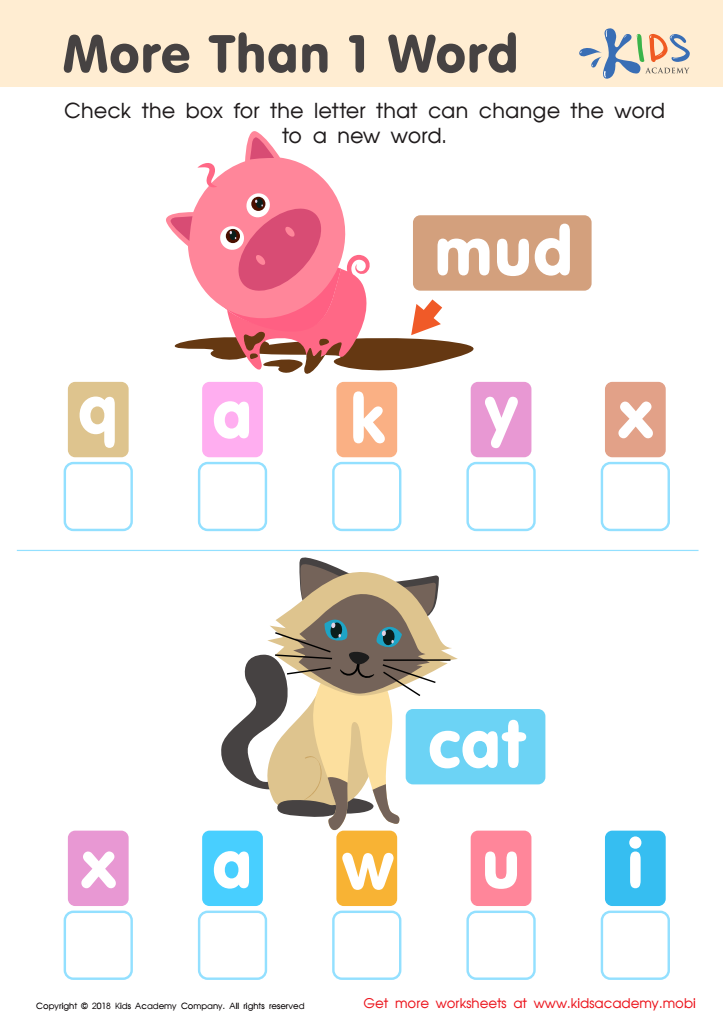

More than 1 word Worksheet
Alphabet activities for ages 3-9 are vital for early literacy development and provide a solid foundation for children's future reading and writing skills. Engaging young children in these activities enhances their phonemic awareness, allowing them to understand and manipulate sounds, which is crucial for effective reading. Activities like letter recognition games, alphabet songs, and interactive play encourage exploration and reinforce learning in a fun way.
Additionally, these activities promote cognitive development. Through hands-on exercises, children learn to associate letters with sounds, improving their vocabulary and comprehension. Furthermore, they foster fine motor skills through writing and crafting, which is instrumental in their overall development.
For parents and teachers, incorporating alphabet activities into daily routines nurtures a love for learning. Engaging children in these activities sparks curiosity, boosts confidence, and lays the groundwork for future academic success. It also creates opportunities for bonding between children and caregivers, enriching their shared experiences.
In cultivating early literacy through engaging alphabet activities, parents and teachers play a crucial role in shaping children's educational trajectories, ultimately setting them on a path to become proficient readers and lifelong learners. Prioritizing these activities in foundational education should be a core focus for anyone involved in a child's development.

 Assign to My Students
Assign to My Students




.jpg)
